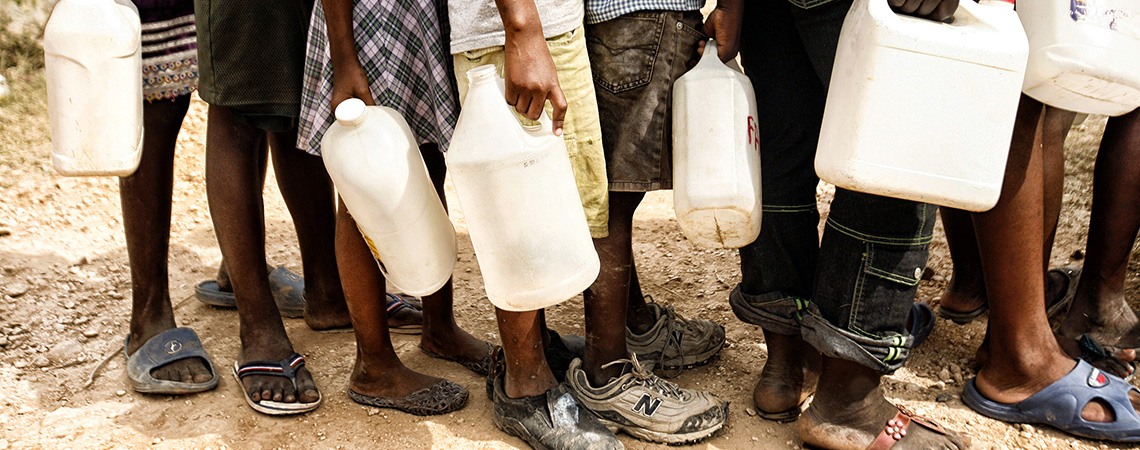
Photo:
The Republic of Haiti is extremely vulnerable to climate change, particularly to the impacts of recurrent floods and droughts.
Reductions in freshwater availability in the country have been attributed to observed increases in the duration and intensity of drought periods, resulting in reduced water yield in springs, wells, and rivers. Reductions in groundwater resources are further compounded by an increase in the intensity of rainfall events, which, when coupled with extensive ecosystem degradation in critical recharge zones, reduce rainwater infiltration and subsequent aquifer recharge.
This project (2022 - 2027) will strengthen the resilience of vulnerable rural and peri-urban communities in the South-East (Sud-Est) Department of Haiti against projected impacts of climate change on drinking water availability and access, through three interrelated components:
1. Improved understanding and awareness of the water sector's vulnerability to climate change;
2. Strengthened regulatory and policy frameworks, as well as institutional capacities at national, regional and local levels for the improved management of drinking water under climate change conditions; and
3. Identification and promotion of practices for the conservation, management and supply of drinking water adapted to climate change conditions.
- Community
- District
- National
- Country Office
- Local Governments
- National Governments
- Non-Governmental Organizations
- United Nations Development Programme (UNDP)
86 target communities in the country’s South-East Department, specifically the catchment areas, recharge zones and springs of the Cresson, Bodarie, Préchet, Cascade Pichon and K-Royer Drinking Water Supply Systems (SAEPs), with approximately 338,728 individual beneficiaries National institutions (DINEPA, Ministry of Envionment, MARNDR)
- Ministry of Environment, Government of Haiti
- Helvetas
- United Nations Development Programme (UNDP)
- Global Environment Facility (GEF)
- Image
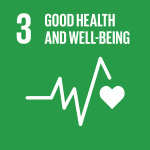
- Image
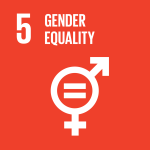
- Image
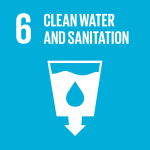
- Image
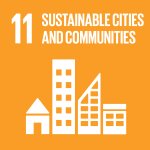
- Image

- Image
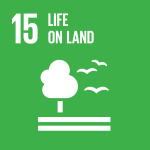
Climate change is exacerbating existing pressures on drinking water resources in Haiti, negatively affecting the lives and wellbeing of vulnerable communities.
The preferred solution is to increase water availability in target watersheds in the country’s South-East Department by conserving critical water recharge zones and aquifers, while enhancing the climate resilience of water distribution and storage infrastructure to ensure reliable access to water resources for target communities. These interventions will be supported by strengthened institutional and regulatory systems to promote the sustainable management of water resources and infrastructure.
This project will achieve the preferred solution through three interrelated components — specifically:
- Component 1 — Improved understanding and awareness of the water sector's vulnerability to climate change;
- Component 2 — Strengthened regulatory and policy frameworks, as well as institutional capacities at national, regional and local levels for the improved management of drinking water under climate change conditions; and
- Component 3 — Identification and promotion of practices for the conservation, management and supply of drinking water adapted to climate change conditions.
Under these three components, the proposed project’s climate change adaptation strategy will include:
i) Implementing on-the-ground interventions to improve aquifer recharge and climate-proof drinking water supply (such as agroforestry, the protection of water sources and aquifer recharge areas, percolation tanks and rainwater harvesting systems);
ii) Strengthening local capacities for climate-resilient water resource management through awareness raising and knowledge generation; and
iii) Developing support tools and strengthening technical/institutional capacities of decision-makers at the national and regional level to promote the mainstreaming of climate change into the planning and management of drinking water and associated natural resources in Haiti.
The project will target vulnerable areas of the country’s South-East Department, specifically the catchment areas, recharge zones and springs of the Cresson, Bodarie, Préchet, Cascade Pichon and K-Royer Drinking Water Supply Systems (SAEPs). These five target SAEPs were selected according to a methodology defined and developed collaboratively between the Government of Haiti (GoH), UNDP Haiti and consultants on the PPG Team.
Adaptation interventions to be implemented under the project components will positively impact local communities in these areas by reducing their vulnerability and increasing their resilience to droughts and floods.
By providing tools and developing capacities for the improved management of drinking water resources, project interventions will enable ~ 130,000 direct beneficiaries — reliant on the abovementioned drinking water sources — to benefit from more reliably available drinking water throughout the year under the context of increasingly long and intense drought periods that are expected to result from climate change.
The components and related interventions form part of the project’s Theory of Change outlined in the Project Document, which maps out the project’s baseline problem, assumptions, barriers, risks, components, outputs, outcomes, and objectives.
Component 1: Improved understanding and awareness of the water sector vulnerability to climate change
Outcome 1.1: Improved awareness raising and knowledge and information management systems for the water sector to plan and respond to the impacts of climate change.
Output 1.1.1: Assessments, with gender-specific criteria, carried out at the national level to demonstrate the implications of different climate change scenarios on the availability of water.
Output 1.1.2: A continuous information- and knowledge-generation and dissemination system implemented to inform communities and the GoH on water management adaptation strategies and climate-resilient water supply.
Output 1.1.3: Cost-benefit analyses of different adaptation strategies developed as per the predicted climate change scenarios identified under Output 1.1.1.
Output 1.1.4: Training programmes implemented for regional and national institutions on the extent of climate change impacts on freshwater availability — including methodologies and application of vulnerability assessments (as developed under Output 1.2.1 below) and adaptation solutions.
Output 1.1.5: Inventory and quality characterisation of groundwater aquifers in the target area carried out by OREPA Sud.
Output 1.1.6: Scientific and technical studies on the impacts of climate change and options for adaptation management in the target area conducted, informing local decision-making on climate-resilient water supply.
Outcome 1.2: Target communities prepared to effectively plan responses to climate change impacts on their access to drinking water.
Output 1.2.1: Methodologies and instruments developed for community-level vulnerability assessments (VAs) of drinking water supply.
Output 1.2.2: Participatory climate change vulnerability assessments (VAs) carried out in the project’s target communities.
Output 1.2.3: Integrated water resource modelling conducted to demonstrate the projected long-term impacts of climate change on biodiversity, ecosystems, and urban systems, as well as the relationships between these aspects and drinking water availability at the landscape level.
Component 2: Strengthening of the regulatory, policy and institutional capacity framework at national, regional, and local levels for the effective management of drinking water under climate change conditions
Outcome 2.1: Key regulatory and policy instruments adjusted to consider the implications of climate change for drinking water supply and promote adaptive community-based management, knowledge generation and dissemination
Output 2.1.1: Two regulatory instruments adjusted to account for the evolving contextual needs and conditions resulting from climate change.
Output 2.1.2: Strategic plans revised by sub-national regulatory institutions to prioritise adaptation interventions based on evaluations of climate change impacts on water supply vulnerability.
Output 2.1.3: Frameworks and instruments developed and applied for planning and coordination between national, regional, private and community-based organisations.
Outcome 2.2: Increased capacities in priority institutional stakeholders (DINEPA, OREPA Sud, CAEPAs and CTEs) with regards to the technical aspects of water resource management, territorial land-use planning, as well as management and application of information on water resources and climate change threats.
Output 2.2.1: Targeted programmes implemented to strengthen technical capacity of relevant institutions to incorporate climate change data into planning and management.
Output 2.2.2: Equipment provided to support the efficient application of technical capacity developed by training workshops.
Outcome 2.3: Target communities equipped with instruments and mechanisms that ensure the sustainable management of water resources and associated infrastructure, as well as specific strategies to target female-headed households.
Output 2.3.1: Community-based strategic and operational plans, with gender-specific criteria, developed to ensure the climate resilience of drinking water access.
Output 2.3.2: Consultative and consensus-based community-level engagement on land-use planning conducted, and training programmes developed, for sustainable land uses in drainage and recharge zones to ensure the climate resilience of drinking water recharge.
Output 2.3.3: Programmes implemented to strengthen organisational capacities and awareness of community-level stakeholders and organisations — reflecting gender-specific differences and promoting the equitable management of water resources and supply infrastructure under climate change conditions.
Component 3. Identification and promotion of practices for the conservation, management and supply of drinking water adapted to predicted climate change scenarios
Outcome 3.1: Reliable access to drinking water ensured for target communities and households as a result of the implementation of climate change adaptation measures.
Output 3.1.1: 4,540 ha of aquifer recharge zones rehabilitated within the five target SAEPs[2] — of which 700 ha is restored through agroforestry.
Output 3.1.2: Gabions , percolation tanks , contour bunds and, septic tanks constructed to promote aquifer recharge and to reinforce the protection of the five target Drinking Water Supply Systems (SAEPs).
Output 3.1.3: Rooftop water harvesting systems and household cisterns installed in 350 households in target communities.
Output 3.1.4: Framework for financial plans for O&M of the five target SAEPs to improve water-use efficiency and distribution, accompanied by awareness-raising and advocacy programmes.
Output 3.1.5: Programmes for treating water supplies with sodium hypochlorite implemented to reduce water pollution-related health risks.
Project results, indicators and targets will be monitored annually and evaluated periodically during implementation. Monitoring and evaluation will be undertaken in compliance with UNDP requirements as outlined in the UNDP POPP and UNDP Evaluation Policy. Additional GEF-specific M&E requirements will be undertaken in accordance with the GEF M&E policy and other relevant GEF policies.
In addition to these mandatory UNDP and GEF M&E requirements, other M&E activities deemed necessary to support project-level adaptive management will be agreed – including during the project’s Inception Workshop (to be held within 2 months from the date of First Disbursement) and will be detailed in the Inception Report.
The GEF Core indicators included as Annex of the project document will be used to monitor global environmental benefits and will be updated for reporting to the GEF prior to MTR and TE. The project team is responsible for updating the indicator status.
Key monitoring and reporting requirements:
· Inception Workshop and Report
· Annual GEF Project Implementation Reports
· Independent Mid-term Review
· Terminal Evaluation (to be made publicly available in English on UNDP’s Evaluation Resource Centre)
· Final Report Package: Final Project Implementation Report, along with the Terminal Evaluation and corresponding management response
- UNDPMontserrat XilotlRegional Technical Specialist – Climate Change Adaptation
- UNDPDorine Jn PaulHead of Resilience Unit, UNDP Haiti

